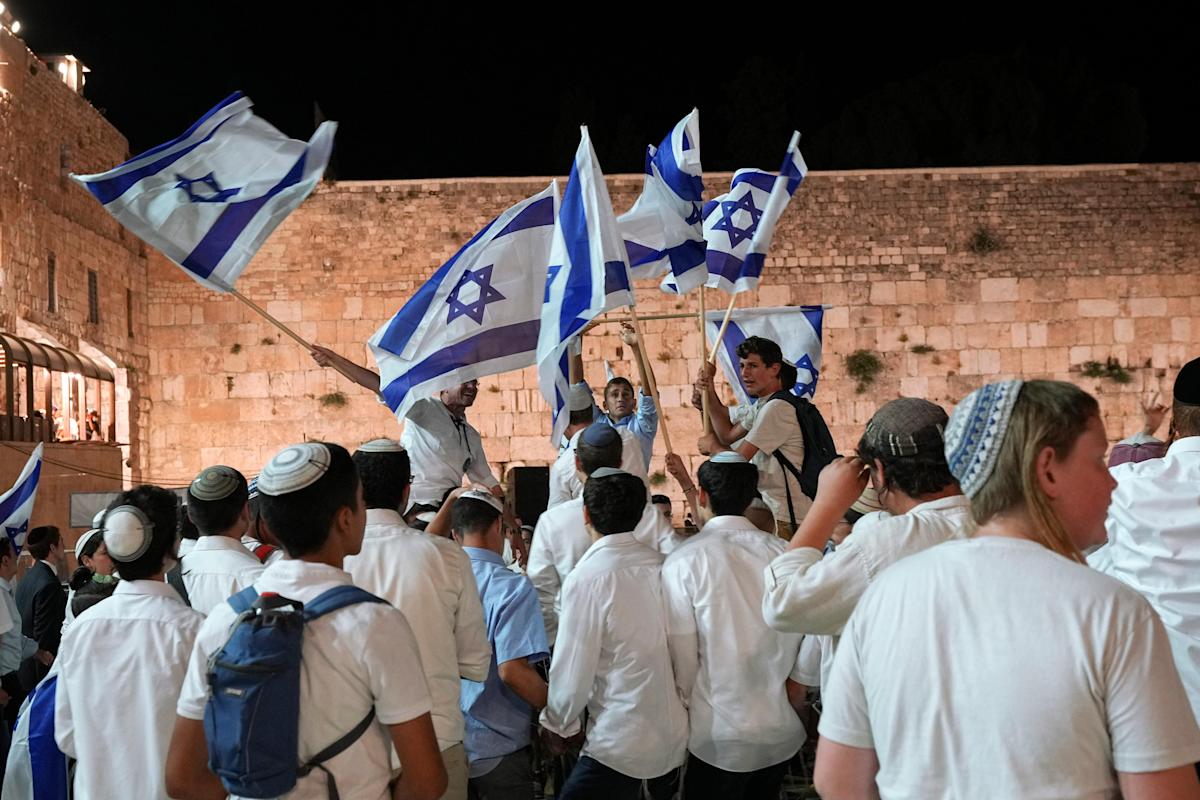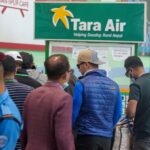
JERUSALEM (AP) — A far-right Israeli lawmaker, joined by scores of ultranationalist supporters, entered Jerusalem’s most sensitive holy site early Sunday, prompting a crowd of Palestinians to begin throwing rocks and fireworks toward nearby Israeli police.
The unrest erupted ahead of a mass ultranationalist Israeli march planned later Sunday through the heart of the Muslim Quarter of Jerusalem’s Old City. Some 3,000 Israeli police were deployed throughout the city ahead of the march.
Israel says the march is meant to celebrate Israel’s capture of east Jerusalem, including the Old City, in the 1967 Mideast war. Israel claims all of Jerusalem as its capital. But Palestinians, who seek east Jerusalem as the capital of a future state, see the march as a provocation. Last year, the parade helped trigger an 11-day war between Israel and Gaza militants.
Sunday’s unrest took place in a contested hilltop compound revered by Jews and Muslims. The compound is home to the Al Aqsa Mosque, the third-holiest site in Islam. It also the holiest site for Jews, who call it the Temple Mount and revere it as the home of the biblical Temples. The competing claims to the site lie at the heart of the Israeli-Palestinian conflict and have triggered numerous rounds of violence.
Itamar Ben-Gvir, leader of a small ultranationalist opposition party and a follower of the late racist rabbi, Meir Kahane, entered the compound early Sunday along with dozens of supporters.
Palestinians shouted “God is great” as Ben-Gvir, accompanied by Israeli police, shouted “the Jewish people live.” Later, a crowd of Palestinians barricaded inside the mosque threw fireworks and stones toward police, who did not immediately respond.
Israel’s national police chief, Kobi Shabtai, said his forces were prepared for “every scenario” and had taken “immediate and professional” action when needed.
“We will not allow any inciter or rioter to sabatage today’s events and to disrupt law and order,” he said.
Sunday’s march comes at a time of heightened tensions. Israeli police have repeatedly confronted stone-throwing Palestinian demonstrators in the disputed compound in recent months, often firing rubber bullets and stun grenades.
At the same time, some 19 Israelis have been killed by Palestinian attackers in Israel and the occupied West Bank in recent weeks, while over 35 Palestinians have been killed in Israeli military operations in the occupied West Bank. Many of those killed were Palestinian militants, but several civilians were also among the dead, including Shireen Abu Akleh, a well-known correspondent for the Al Jazeera satellite channel.
Jerusalem police were criticized internationally for beating mourners at Abu Akleh’s funeral two weeks ago.
Under longstanding arrangements known as the “status quo,” Jewish pilgrims are allowed to enter the hilltop compound but they are not allowed to pray. In recent years, however, the number of Jewish visitors has grown significantly, including some who have been spotted quietly praying.
Such scenes have sparked Palestinian fears that Israel is plotting to take over or divide the area. Israel denies such claims, saying it remains committed to the status quo.




